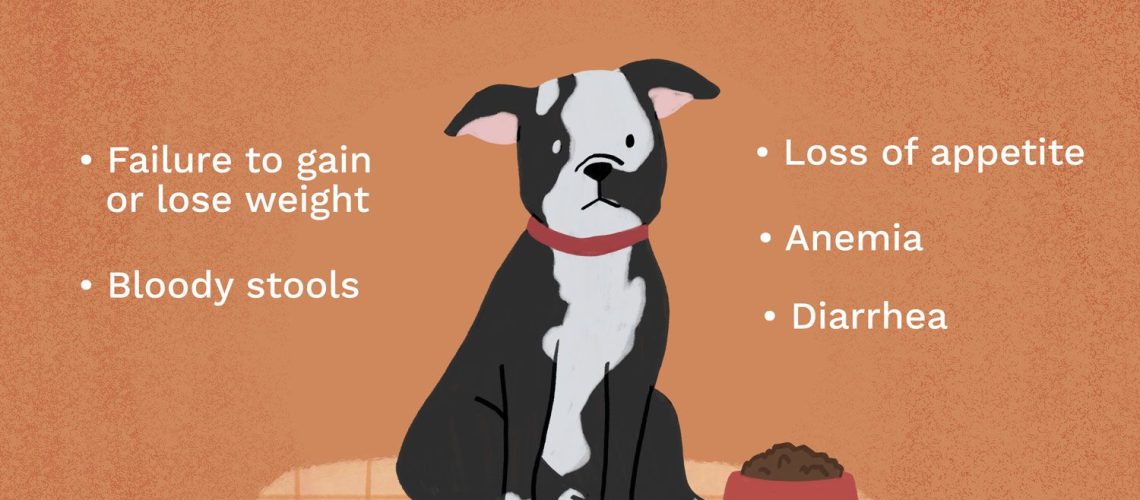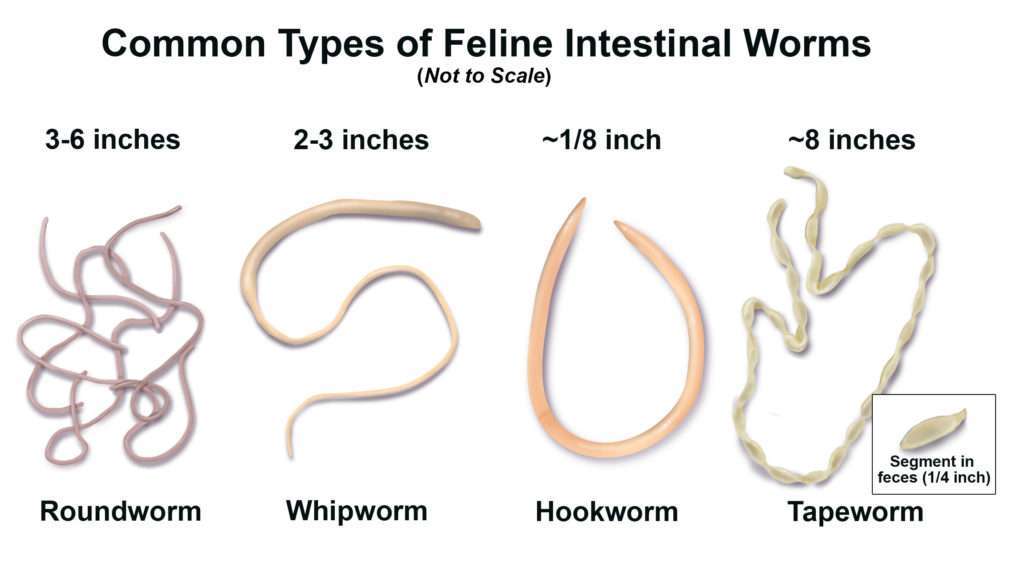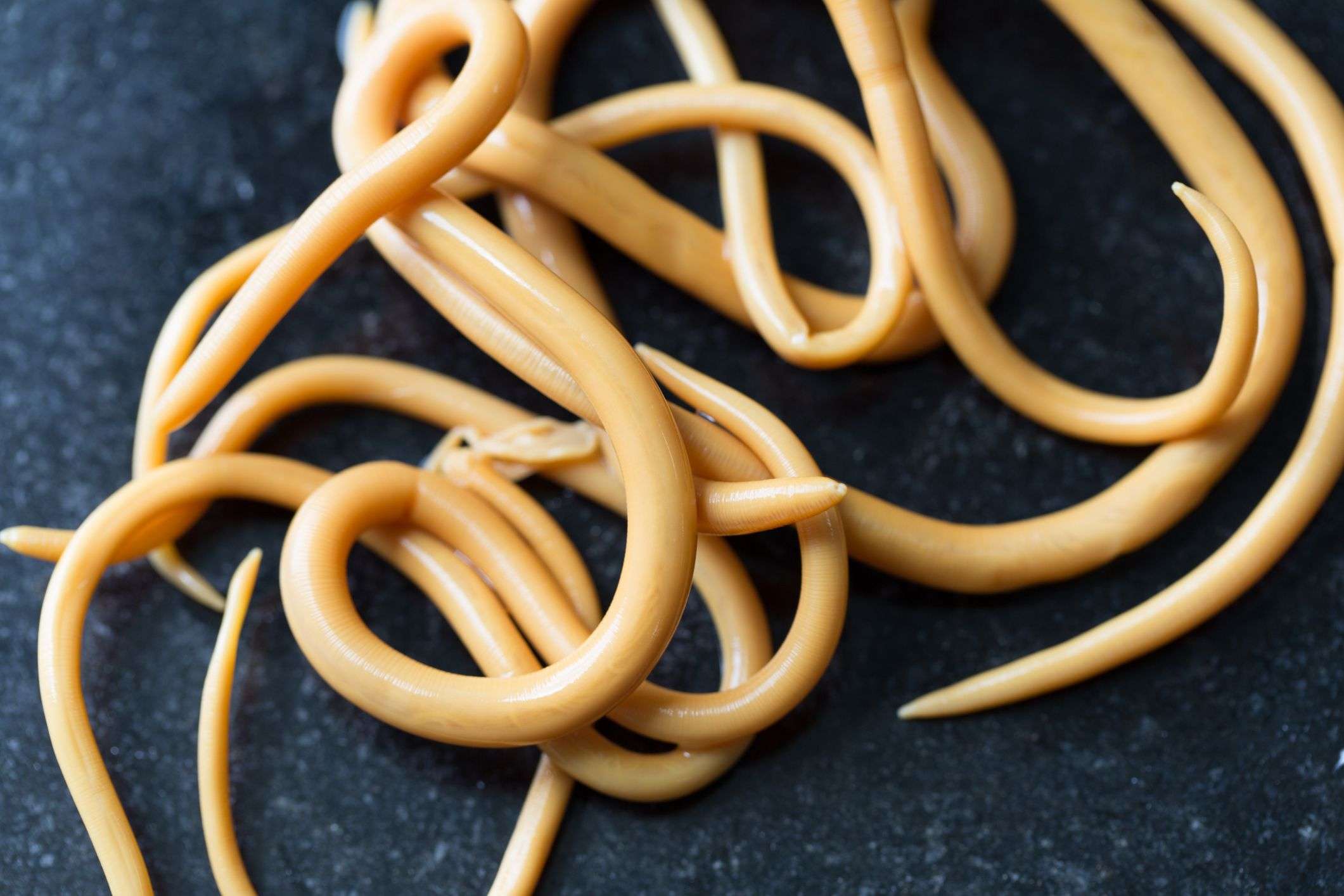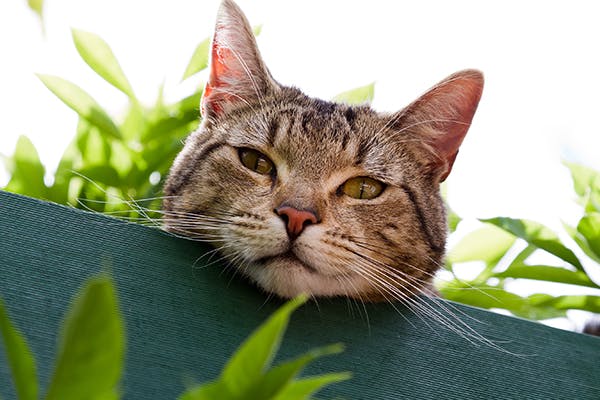Key Takeaways:
- Hookworms are a common type of parasite that can affect puppies.
- Puppies can become infected with hookworms through their mother's milk or by ingesting contaminated soil or feces.
- Hookworm infections in puppies can lead to symptoms such as diarrhea, weight loss, and anemia.
- Regular deworming and proper hygiene practices are crucial in preventing and treating hookworm infections in puppies.
- Early detection and treatment of hookworms in puppies is important to prevent complications and ensure their overall health and well-being.
Are you a proud owner of a playful puppy? If so, then understanding the topic of hookworms in puppies is essential to ensure your furry friend stays healthy and happy. These tiny parasites may seem harmless, but they can wreak havoc on your puppy's health if left untreated. By delving into this subject, you will gain valuable knowledge that can protect your puppy from the dangers of hookworms. Join us as we explore the world of these sneaky parasites and discover how to keep our puppies safe. Get ready to become a responsible and informed pet owner – let's dive in!
What are hookworms and how do they affect puppies?
Hookworms are a type of parasitic worm that can infect puppies. These worms attach themselves to the lining of the puppy's intestines and feed on their blood. This can cause anemia, which means the puppy doesn't have enough red blood cells to carry oxygen throughout their body. Without enough oxygen, the puppy may become weak, tired, and may even have trouble breathing.
In addition to causing anemia, hookworms can also cause other symptoms in puppies such as diarrhea, weight loss, and poor growth. They can be especially dangerous for young puppies because their immune systems are not fully developed yet, making it harder for them to fight off the infection.
If left untreated, hookworm infections in puppies can be life-threatening. It is important to take your puppy to the veterinarian if you suspect they may have hookworms so that they can receive proper treatment.
The Life Cycle of Hookworms
To understand how hookworms infect puppies, it's important to know a little bit about their life cycle. Adult female hookworms lay eggs in the intestines of infected animals. These eggs then pass out of the animal's body through their feces. In warm and moist environments, such as soil or grass, these eggs hatch into larvae.
The larvae then go through several stages before becoming adult hookworms. During these stages, they need to find a host animal to continue their development. Puppies can become infected with hookworm larvae by ingesting them or by having them penetrate through their skin when walking or lying on contaminated ground.
How Puppies Get Infected with Hookworms:
- Ingesting contaminated soil or grass while playing or exploring outdoors.
- Walking or lying on ground contaminated with hookworm larvae.
- Drinking milk from an infected mother dog who has hookworms.
- Being in contact with other infected animals, such as stray dogs or wildlife.
Signs of Hookworm Infection in Puppies:
- Diarrhea, sometimes with blood.
- Weight loss and poor growth.
- Anemia, which may cause pale gums and weakness.
- Coughing or difficulty breathing.
- Poor appetite.
Can Hookworms Pass from Puppies to Humans?
Yes, hookworms can pass from puppies to humans. While it is not very common, it is still possible for humans to become infected with hookworm larvae if they come into contact with contaminated soil or feces. This can happen if a person walks barefoot on infected ground or accidentally ingests the larvae. However, most cases of hookworm infections in humans are caused by a different species of hookworm than the ones that infect puppies.
It is important to practice good hygiene when handling puppies and cleaning up after them to reduce the risk of transmission. Washing hands thoroughly with soap and water after handling puppies or cleaning up their waste can help prevent the spread of hookworms.
How to Prevent Hookworm Infections in Puppies:
Preventing hookworm infections in puppies involves several measures:
1. Regular Veterinary Check-ups: Take your puppy to the veterinarian for regular check-ups and deworming treatments. Veterinarians can detect and treat hookworm infections early before they cause serious health problems.
2. Clean Living Environment: Keep your puppy's living area clean by regularly removing feces and sanitizing the area. This helps reduce the chances of contamination with hookworm larvae.
3. Avoid Contaminated Areas: Avoid letting your puppy play or walk in areas known to be contaminated with hookworm larvae, such as parks where many dogs go without proper sanitation measures.
4. Proper Waste Disposal: Always clean up after your puppy and properly dispose of their waste in a sealed bag. This prevents the spread of hookworm larvae to other animals or humans.
5. Prevent Contact with Infected Animals: Avoid contact between your puppy and stray dogs or other animals that may be infected with hookworms.
Treatments Available for Puppies with Hookworms:
If your puppy is diagnosed with hookworms, your veterinarian will prescribe appropriate medications to treat the infection. These medications are usually given orally and work by killing the adult worms in the puppy's intestines.
In addition to medication, it may be necessary to provide supportive care for puppies with severe infections, such as blood transfusions to treat anemia or fluid therapy to rehydrate them if they have diarrhea.
It is important to follow your veterinarian's instructions carefully and complete the full course of treatment to ensure that all the worms are eliminated from your puppy's system.
Can Puppies Develop Immunity Against Hookworms Over Time?
Puppies can develop some level of immunity against hookworms over time, but it may take several years for them to build up enough immunity to resist future infections. This is why regular deworming treatments and preventive measures are still necessary even as puppies grow older.
As puppies receive proper veterinary care and vaccinations, their immune systems become stronger, which helps them fight off infections more effectively. However, it is still important to continue practicing good hygiene and preventive measures throughout a dog's life to reduce the risk of hookworm infections.
By following these guidelines and working closely with your veterinarian, you can help protect your puppy from hookworms and ensure their overall health and well-being.
How puppies get infected with hookworms?
Hookworm infection in puppies occurs when they come into contact with contaminated soil or feces containing hookworm larvae. These microscopic parasites can penetrate the puppy's skin, usually through their paws or by ingestion. Puppies can also acquire hookworms from their mother if she is infected and passes the larvae to them during pregnancy or through her milk while nursing. Once inside the puppy's body, the hookworm larvae migrate to the intestines where they mature and attach themselves to the intestinal wall, feeding on blood.
Transmission through contaminated soil
Puppies are more susceptible to hookworm infections because they tend to explore their surroundings using their mouths and often come into contact with contaminated soil. This can happen when they play in outdoor areas where other infected animals have defecated. The larvae present in the feces can survive for weeks or even months in moist environments, waiting for a suitable host like a curious puppy.
Infection from mother to puppy
Another common route of infection is from an infected mother dog to her puppies. The larvae can be transmitted through the placenta during pregnancy or through the milk while nursing. This is why it is crucial for pregnant dogs to receive regular veterinary care and deworming treatments to prevent passing on these parasites to their offspring.
Preventing transmission
To minimize the risk of puppies getting infected with hookworms, it is essential to keep their living environment clean and free from fecal contamination. Regularly removing feces from outdoor areas and providing proper sanitation measures can help reduce exposure. Additionally, pregnant dogs should undergo regular veterinary check-ups and receive appropriate deworming treatments as recommended by a veterinarian.
It is important for pet owners to be aware of these potential sources of infection and take necessary precautions to protect their puppies from hookworms.
What are the signs of hookworm infection in puppies?
Common Symptoms
Hookworm infection in puppies can cause a range of symptoms. The most common signs include diarrhea, which may be bloody, and weight loss despite a good appetite. Puppies with hookworms may also have poor growth and appear weak or lethargic. Additionally, you may notice pale gums due to anemia caused by the parasites feeding on their blood.
Less Obvious Signs
While some symptoms are more apparent, others may be less obvious. Puppies with hookworms might experience coughing or respiratory issues if the larvae migrate to their lungs. They may also develop skin irritations or itchiness as a result of the parasites burrowing into their skin. It's important to keep an eye out for any unusual behavior or health changes in your puppy and consult a veterinarian if you suspect a hookworm infection.
Can hookworms pass from puppies to humans?
Yes, hookworms can pass from puppies to humans through skin contact with contaminated soil or feces. This is known as zoonotic transmission. While it is relatively rare for humans to contract hookworm infections from puppies, it is still important to take precautions, especially if there are young children or individuals with weakened immune systems in the household.
Preventing Transmission
To prevent the transmission of hookworms from puppies to humans, it is crucial to practice good hygiene. Always wash your hands thoroughly after handling puppies or cleaning up after them. Avoid walking barefoot in areas where puppies have defecated, as this reduces the risk of larvae penetrating your skin.
Treating Infected Puppies
If you suspect that your puppy has a hookworm infection, seek veterinary care immediately. Prompt treatment not only helps alleviate your puppy's symptoms but also reduces the risk of transmission to humans. Your veterinarian will prescribe appropriate deworming medications and provide guidance on preventing further infections.
How to prevent hookworm infections in puppies?
Clean Living Environment
Maintaining a clean living environment is essential for preventing hookworm infections in puppies. Regularly clean and disinfect their bedding, toys, and living areas. Remove feces promptly from the yard or designated potty area to minimize exposure to infective larvae.
Proper Deworming
Following a deworming schedule recommended by your veterinarian is crucial in preventing hookworm infections. Puppies should be dewormed starting at a young age, as early as two weeks old, and continue with regular treatments until they reach adulthood. This helps eliminate any existing parasites and prevents reinfestation.
Avoidance of Contaminated Areas
Limit your puppy's access to areas where hookworm larvae may be present, such as heavily contaminated soil or places frequented by stray animals. Avoid walking them in public parks or other communal spaces until they are fully protected against hookworms.
Treatments available for puppies with hookworms
Deworming Medications
There are several effective deworming medications available for treating puppies with hookworms. These medications come in various forms such as tablets, liquids, or spot-on treatments. Your veterinarian will determine the most suitable option based on your puppy's age, weight, and overall health condition.
Administering Medication
It is important to follow your veterinarian's instructions carefully when administering deworming medication to your puppy. The dosage and frequency will depend on the specific medication prescribed. Some medications may require multiple doses given over several weeks to ensure all stages of the hookworm lifecycle are eliminated.
Preventive Measures
In addition to treating the current infection, your veterinarian may recommend preventive measures to reduce the risk of future hookworm infestations. This can include regular deworming as part of your puppy's routine healthcare, as well as environmental management strategies to minimize exposure to infective larvae.
Can puppies develop immunity against hookworms over time?
Yes, puppies can develop some level of immunity against hookworms over time. As they are exposed to the parasites, their immune system learns to recognize and fight off the infection more effectively. However, this immunity may not provide complete protection, especially if the puppy is constantly exposed to high levels of infective larvae.
The Role of Vaccinations
Vaccinations play a crucial role in building immunity against certain diseases but do not directly protect against hookworm infections. It is important to follow a regular deworming schedule recommended by your veterinarian to ensure effective control of hookworms in puppies.
Preventing Reinfection
While some level of immunity can develop, it is still important to take preventive measures and maintain good hygiene practices. Regular deworming and proper sanitation help prevent reinfection and reduce the risk of transmission between puppies and humans.
Remember, if you suspect that your puppy has a hookworm infection or have any concerns about their health, consult with a veterinarian for accurate diagnosis and appropriate treatment options.
In conclusion, hookworms are a common problem in puppies that can cause serious health issues. It is important to regularly deworm and take preventive measures to keep our furry friends healthy and happy.
Can a puppy survive hookworms?
It is not unusual for young puppies to pass away due to severe hookworm infections. Irritated and itchy skin, particularly on the paws, caused by larvae burrowing into and traveling along the skin, can indicate a heavily infested environment. In more serious cases, dogs may also experience coughing.
How serious is hookworm in puppies?
Hookworms are a type of parasite that infects the intestines and can lead to anemia, weakness, lung damage, and pneumonia. Although adults may not always exhibit symptoms, hookworms pose a significant risk to young puppies, potentially causing long-term growth issues or even death.
How long does it take to get rid of hookworms in puppies?
When identified early, symptoms typically improve within 3-5 days with medication and it may take a few weeks to completely eradicate the worms. In more severe instances, recovery will involve addressing and monitoring peripheral symptoms like anemia and weakness that arise from the condition.
Do I need to clean my house if my dog has hookworms?
Hookworm infection is typically diagnosed through a fecal floatation test. Treatment is usually simple and successful, involving the use of a dewormer and cleaning the environment. To prevent re-infection, it is important to vacuum and clean indoor floors with a multi-purpose cleaner.
Can I get hookworm from my dog licking me?
Diseases such as hookworm, roundworm, and giardia can be transmitted from dogs to humans through licking. Similarly, salmonella can also be passed between dogs and humans. However, viruses typically only affect one species and cannot be transmitted between dogs and humans.
What do hookworms look like in puppy poop?
Hookworms are tiny worms with hook-shaped mouthparts that they utilize to attach themselves to the intestinal wall. They excrete eggs that are subsequently expelled through feces, although these eggs are too small to be visible in your dog's stool.

















